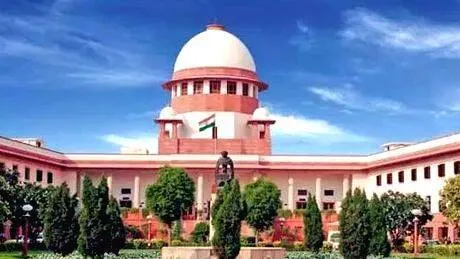

New Delhi: The Supreme Court has issued a detailed 111-page opinion on the reference sent by President Droupadi Murmu. The President had raised 14 questions. Here are the questions and the answers:
1. What can a Governor do when a Bill is presented to them?
A Governor can approve the Bill. If the Governor believes the Bill should not be approved, it can be returned. A Governor may also send it to the President.
However, keeping a Bill pending indefinitely goes against federal principles. The Court rejected the Union Government’s view that a Governor can keep a Bill “on hold” without action.
2. Is a Governor bound to follow the advice of the Council of Ministers?
Yes. A Governor is bound by the advice of the Council of Ministers. But a Governor has limited discretionary powers- only to return a Bill or to send it to the President.
3. Is it legal for a Governor to use discretionary power when deciding on Bills?
Yes, it is legal. But a Governor cannot sit on a Bill indefinitely. A decision must be taken within a reasonable time, and the Court can direct the Governor to act.
4. Do a Governor’s actions get protection under Article 361? Can courts review those actions?
A Governor personally gets constitutional protection and cannot be taken to court. However, the office of the Governor is subject to judicial review. If there is unreasonable delay, courts can intervene.
5. Can courts set a time limit through judicial orders?
6. Is it legal for the President to use constitutional discretion under Article 201?
7. If no time limit is given for the President, can the courts set one through judicial orders?
The Constitution does not specify any time limit. Therefore, the courts cannot set a time limit for the President or the Governor.
8. When a Bill is sent to the President, must the President always seek the Supreme Court’s opinion under Article 143?
No. The President does not need to seek the Court’s opinion every time. It is required only if the President feels it is necessary.
9. Can courts examine a Bill before it becomes law?
No. Courts cannot examine the contents of a Bill before it becomes an Act. It can be challenged only after it becomes law.
10. Can the Supreme Court use its special powers under Article 142 against decisions of a Governor or the President?
No.
11. Is a law valid without a Governor’s approval?
No. A Bill requires a Governor’s approval to become law.
12. Shouldn't constitutional issues be decided by a five-judge bench?
A five-judge bench has already heard this matter, so the question is irrelevant.
13. Aren't there limits to the Supreme Court’s powers under Article 142?
There are limits. The Court cannot override the constitutional powers of the President or the Governor.
14. Can Centre–State disputes be resolved only through petitions under Article 131?
This question is not relevant.